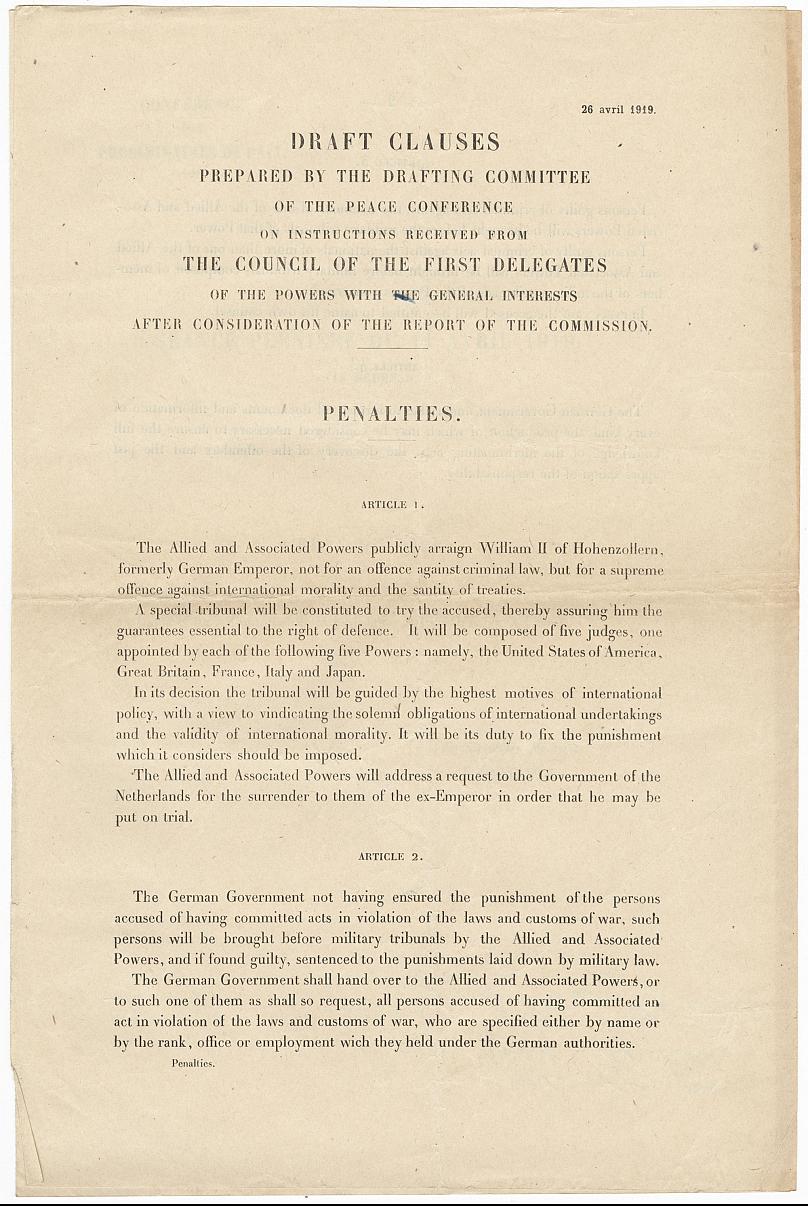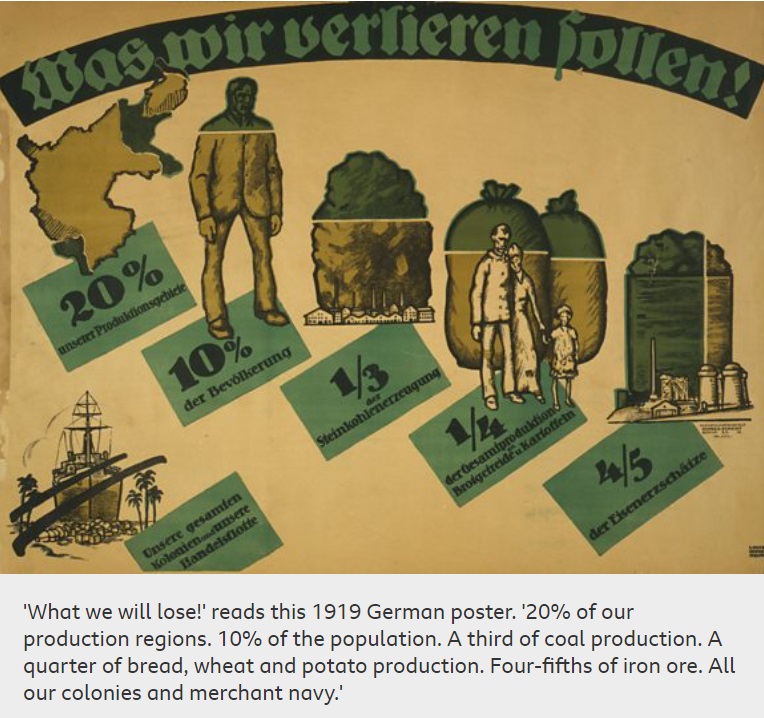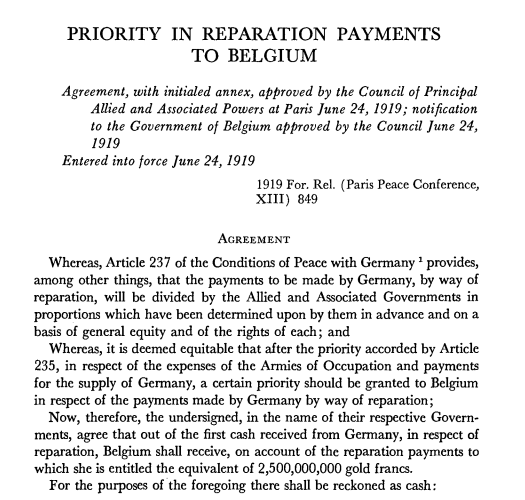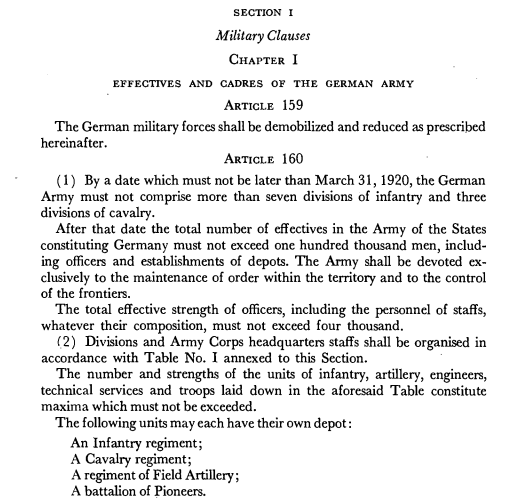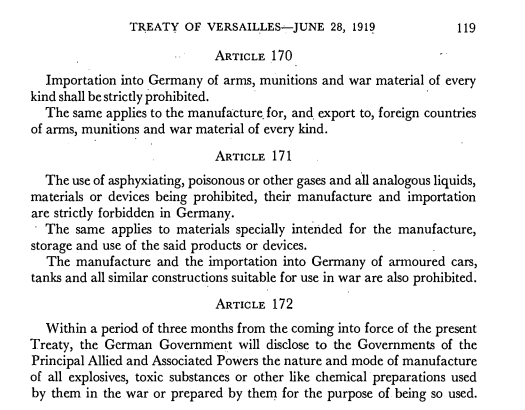The Treaty of Versailles consisted of 440 articles. The main terms revolve around economic reparations, war guilt, territorial loss, military and manufacturing restrictions.
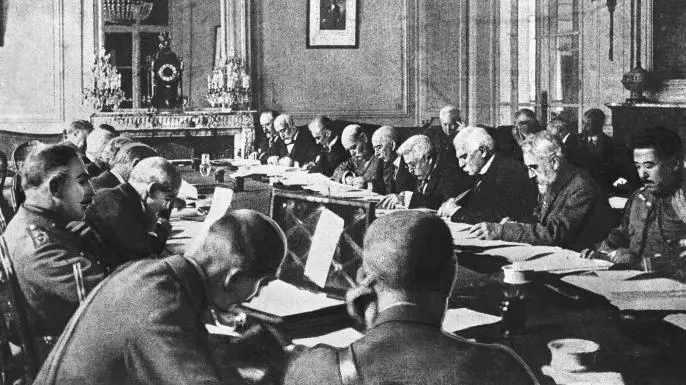
Government Officials Drafting the Terms of the Treaty of Versailles, History.com
